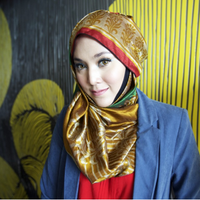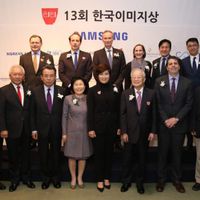China:cultural diplomacy to win hearts and minds
 [caption id="attachment_6340" align="alignright" width="300" caption="Terracotta Warriors"]
[caption id="attachment_6340" align="alignright" width="300" caption="Terracotta Warriors"]In early 2010 at the National People's Congress, Premier Wen Jiabao stated in his government work report that China will attach more importance to cultural development to enhance the international influence of Chinese culture.
This is just the latest confirmation that China recognizes that it has to enhance its global image by the exercise of soft power. Soft power is what a nation can exercise to make itself be loved, as opposed to hard power, which is about making itself feared, think military. The concept was first developed in 1990 by Joseph Nye, a former Dean of the John F. Kennedy School of Government at Harvard.
Reports in the Chinese press suggest that a major salvo in China's soft power initiative is about to be launched at any moment. China has asked a group of 50 Chinese opinion leaders including the omnipresent Yao Ming, Lang Lang and Jackie Chan, to make 30-second image commercials, together with one 15-minute commercial to, according to the State Council, present an image of "prosperity, democracy, openness, peace and harmony" as a counterweight to neutralize negative stereotypes coming from foreign media. These may be good to show in embassy waiting rooms and at public events, but as a media campaign they will have about the same effect as the recent "Made in China" campaign, which barely made a ripple worldwide. In any case, they are worth a try.
It is believed that cultural diplomacy will best win hearts and minds. Take the Terracotta Warriors of Xi'an who are serving China better today as softpower ambassadors than they ever served the first emperor of China,Qin Shihuang, as hard power soldiers in the afterlife 2,300 years ago. They have conquered record-breaking crowds and created positive buzz everywhere they have marched. In 2007, they caused a sensation at the British Museum. Despite staying open until almost midnight, the museum had to lock its gates and turn away overflow crowds. When the warriors returned home the following spring, they had drawn a record 850,000 visitors.
Other elements of cultural diplomacy that could be successful are the ever-growing number of Confucius Institutes worldwide. Also, audiences love live performances, including superstars like Lang Lang. This includes wushu from the Shaolin Temple and elsewhere, Chinese acrobats, circus performers and gymnasts. Audiences could thrill to master classes, lessons and just meeting these ambassadors of good will if they could be scheduled accordingly.
Similar content
posted on
09 Aug 2012
posted on
16 May 2016
from - to
09 Sep 2013 - 10 Sep 2013
from - to
28 Jul 2012 - 10 Mar 2013



